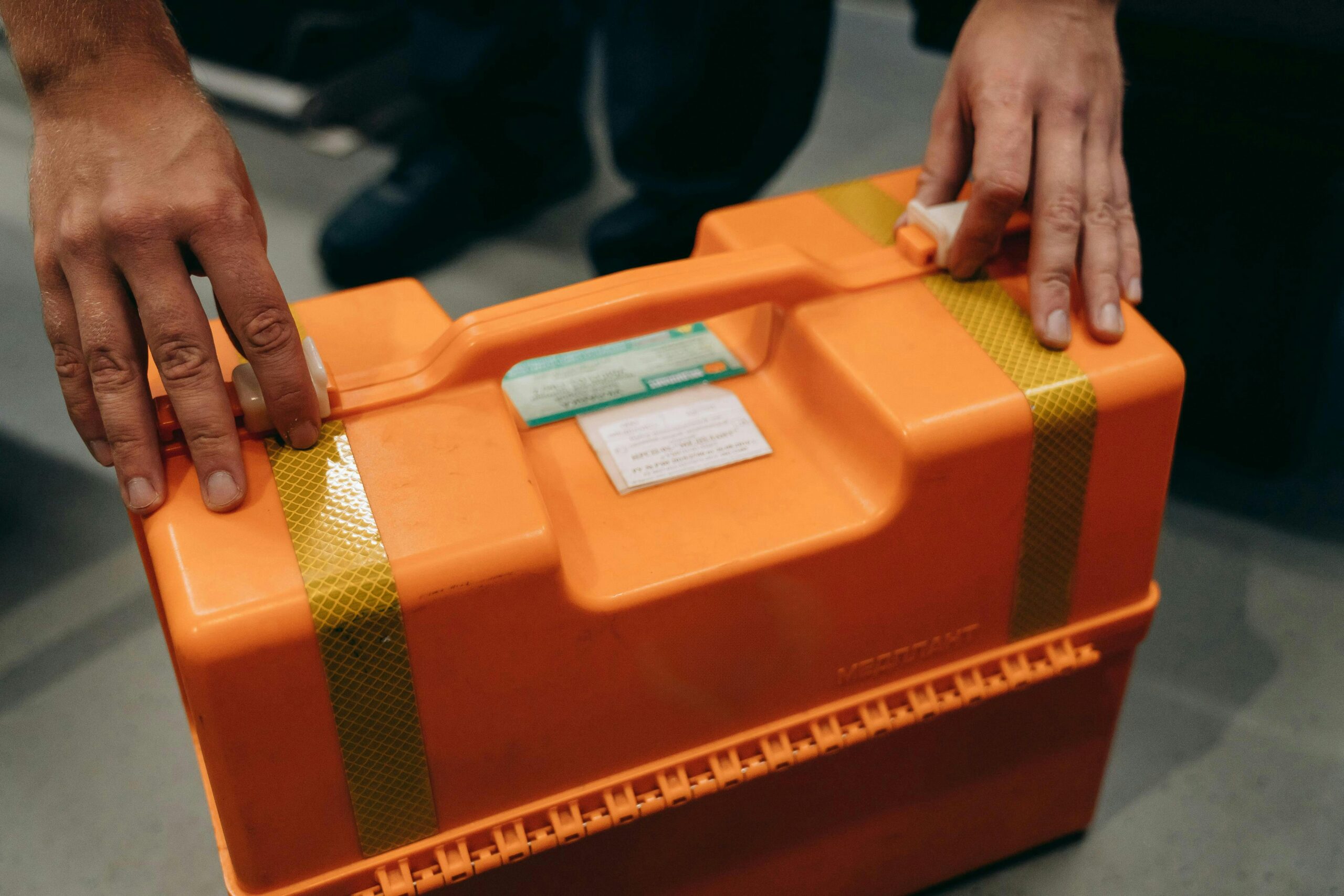Have you ever found yourself in a situation where you needed extra storage space for your files, or maybe you wanted to back up your important data? The world of external hard drives is vast and sometimes overwhelming. It’s essential to understand what’s out there to make an informed decision. Let’s break down what the best external hard drives are for your needs.

What Is an External Hard Drive?
An external hard drive is a storage device that connects to your computer via USB, Thunderbolt, or other ports. Unlike internal drives, which are built into your computer, external drives give you the flexibility to store files off your main device, making them easy to transport and use with different systems.
With the increasing amount of data we generate—from photos to videos and, of course, our endless documents—having a reliable external hard drive can be a lifesaver.
Benefits of Using External Hard Drives
You might wonder why you should go for an external hard drive instead of relying on cloud storage or your computer’s built-in storage. Here are a few reasons:
Portability
One of the most significant benefits of external hard drives is their portability. You can easily carry one around, making it simple to transfer large files from one computer to another without depending on the internet.
Increased Storage
As your digital life expands, you may find your built-in storage isn’t enough. An external hard drive can provide an immediate solution, often offering many terabytes of additional space at a reasonable price.
Backup Security
Data loss can be a nightmare, but external hard drives offer a way to create physical backups of your important files. Many backup programs can be set up to automatically save your information, giving you peace of mind.
Greater Control
With external drives, you have full control over your data. You don’t have to worry about internet outages or service provider issues for access to your files. Everything stays in your hands when you have a physical copy.
Factors to Consider When Choosing an External Hard Drive
Before you decide which hard drive suits your needs, there are several factors to keep in mind. Each aspect contributes to the overall performance, reliability, and usefulness of the drive.
Storage Capacity
How much data do you plan on storing? External hard drives come in various sizes ranging from a few hundred gigabytes to several terabytes. Consider how much space you currently use and what you might need in the future.
| Capacity | Typical Users |
|---|---|
| 500 GB | Casual users, light storage |
| 1 TB | Average users, moderate storage |
| 2 TB – 5 TB | Power users, heavy storage |
| 10 TB+ | Professionals, massive storage |
Speed
You want to make sure that your external drive can retrieve and store files quickly. The speed depends on the type of connection it uses, such as USB 3.0, USB-C, or Thunderbolt. Higher-speed connections will allow for faster transfer rates, reducing the time spent waiting for files to upload or download.
Durability
If you plan on taking your external hard drive out and about, ensure that you choose a model that can withstand a few bumps and drops. Look for hard drives that have shock resistance or rugged designs.
Price
External hard drives come in a wide range of price points. While you often get what you pay for, you don’t necessarily have to break the bank to find a good option. Make sure to balance capacity, speed, and durability with your budget.
Transfer Interface
The transfer interface refers to how the hard drive connects to your computer. USB is the most common, but newer options, like Thunderbolt and USB-C, offer faster data transfer speeds. Be sure your drive is compatible with your computer’s ports.
Types of External Hard Drives
You’ll find multiple types of external hard drives available today, each catering to different needs and uses. Here’s a breakdown to help you understand which might be best for you.
HDD (Hard Disk Drive)
HDDs are the traditional spinning disks. They offer a lot of storage for a relatively low price, but they tend to be slower than SSDs. They are often suitable for general use, including backup, video storage, and archiving.
SSD (Solid State Drive)
SSDs, on the other hand, flaunt faster speeds and better durability because they don’t have moving parts. They are generally more expensive than HDDs but are ideal for activities that require high speed, like gaming or video editing.
Portable vs. Desktop
External hard drives can generally be categorized as portable or desktop. Portable drives are powered through the connection cable and are smaller and more lightweight, making them perfect for on-the-go users. In contrast, desktop drives require a separate power source, but they provide more storage capacity.

The Best External Hard Drives on the Market
Now that you’ve gotten a handle on what to consider, let’s take a look at some of the best external hard drives available today.
1. WD My Passport
Type: HDD
Capacity Options: 1TB to 5TB
Connection: USB 3.0
Pros: Compact design, user-friendly software, affordable
Cons: Slower speeds compared to SSDs
The WD My Passport is a top choice for many casual users. It offers great storage options with a mobile-friendly design, making it easy to tuck into a bag. Plus, it comes with software to automate backups!
2. Samsung T7 Portable SSD
Type: SSD
Capacity Options: 500GB to 2TB
Connection: USB-C
Pros: Fast transfer speeds, sleek design, durable
Cons: Higher price per GB
If speed is your game, the Samsung T7 is hard to beat. This drive is incredibly compact and has excellent speeds, making it perfect for gamers and content creators who cannot afford to wait around for their files to transfer.
3. Seagate Backup Plus Slim
Type: HDD
Capacity Options: 1TB to 5TB
Connection: USB 3.0
Pros: Slim profile, good for backups, easy-to-use software
Cons: Not as fast as SSDs
This drive is the perfect balance between affordability and functionality. It’s portable and comes with useful backup software, which makes data recovery a breeze.
4. LaCie Rugged Mini
Type: HDD
Capacity Options: 1TB to 5TB
Connection: USB 3.0
Pros: Shock, drop, and rain resistant, metal casing
Cons: Slightly bulkier than other options
If your lifestyle involves a lot of travel—and you might be prone to accidental drops—this is an excellent pick. LaCie is known for its rugged drives, and the Mini is lightweight while offering top-notch protection.
5. G-Technology G-Drive Mobile SSD
Type: SSD
Capacity Options: 500GB to 2TB
Connection: USB-C
Pros: Extremely durable, fast speeds
Cons: Pricey compared to HDDs
For those in creative fields needing speed and reliability, G-Tech offers an incredible mobile SSD. It’s designed for pros, so you can bet it will hold up under pressure.
Maintaining Your External Hard Drive
Once you’ve picked the right external hard drive, you’ll want to ensure that it lasts as long as possible. Here are ways to maintain your drive:
Regular Backups
Make a habit of regularly backing up your data to avoid any unexpected losses. Many drives come with software to help automate this process, which can save you time and hassle.
Safely Eject
When done using your drive, always remember to safely eject it from your device. This step will help you avoid file corruption and damage to the data.
Stay Organized
Keeping your data organized on your drive can help you find files easily and avoid clutter. Consider creating folders and labeling them clearly.
Monitor Drive Health
Some software can help you monitor the health of your external hard drive. Keep an eye on its performance, and if you notice any signs of slowing or corruption, consider backing up your data and replacing the drive.

Conclusion
In the ever-evolving world of technology, having the best external hard drive tailored to your needs is vital. With various options in terms of capacity, speed, and price, you have plenty of choices to think about. Whether you’re a casual user who needs a reliable backup, or a professional looking for speed and performance, there’s an external hard drive out there just for you.
Understanding what to look for and the specific options available makes it easier for you to find the right fit. With any luck, this guide has placed you on the right path to choosing an external hard drive that suits your requirements.